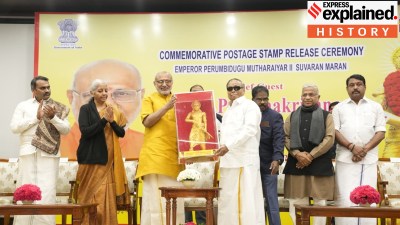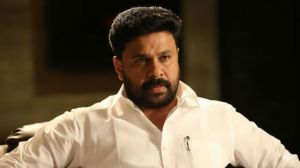Gyanesh Kumar who begins his four-year term as Chief Election Commissioner (CEC) on Wednesday will be at the helm of the Election Commission (EC) as it faces a range of challenges. Among other things, he will have to help the poll body lay the groundwork for potential simultaneous polls and delimitation.

The relationship between the EC and the Opposition has been tense for several years now, with the divide only deepening during the Lok Sabha, Haryana, and Maharashtra elections last year and the Delhi Assembly polls this month.
Kumar takes charge at a time when the Congress has raised questions about the increase in voter numbers in Maharashtra and the Aam Aadmi Party (AAP) has raised questions about the electoral rolls in Delhi.
Apart from questioning the electoral rolls, Opposition parties, over the past year, have also questioned the integrity of Electronic Voting Machines (EVMs), the voter turnout data, and the scheduling of elections. During the Delhi polls, AAP chief Arvind Kejriwal hit out at Rajiv Kumar, who retired as CEC on Tuesday, accusing him of “damaging” the poll body.
While the EC maintains a balance in its actions and communication with parties and their leaders, there have been instances of strong statements in the past year. Responding to Congress president Mallikarjun Kharge’s letter raising the issue of delay in releasing voter turnout data, the EC in May warned, “Utterances from President of National Political Party attacking the very credibility of the electoral steps and processes can have a negative impact on voter participation and can be seen as a means to deter an elector from exercising their franchise and/or demoralising the huge number of election staff and machinery which is mainly drawn from the respective State Governments.”
The Congress hit back, saying the reply was a “permanent blot” on the EC’s reputation.
2. Increasing voter turnout
The country is expected to have 1 billion voters by next year. While that will be an important milestone, equally important will be increasing voter turnout. Over the past three Lok Sabha elections, the turnout has remained almost stagnant: 66.44% in 2014, 67.4% in 2019, and 66.1% in 2024.
Story continues below this ad
At the end of the last Lok Sabha elections, Rajiv Kumar acknowledged that the duration of the elections (seven phases and 44 days) and their timing (it was held amid the scorching summer heat of April to June) likely had an impact on the turnout. How the EC under Gyanesh Kumar responds to this will be among the things to watch out for.
3. Pending electoral reforms
When a new CEC takes office, it is a practice to take a look at the pending proposals for electoral reforms that the EC has sent to the government for consideration and the new issues that need to be flagged.
 Sukhbir Singh Sandhu along with newly appointed CEC Gyanesh Kumar and Dr Vivek Joshi at Election Commission office in New Delhi on Wednesday.
Sukhbir Singh Sandhu along with newly appointed CEC Gyanesh Kumar and Dr Vivek Joshi at Election Commission office in New Delhi on Wednesday.
In his farewell speech, Rajiv Kumar gave some suggestions: biometric authentication before voting to prevent impersonation and multiple voting; the introduction of a totaliser machine to add up the votes of all EVMs of a constituency before the results are released, instead of the polling booth-wise results that are available now, to protect the secrecy of the vote; remote voting for migrants; and allowing NRIs to vote.
Apart from these, there are long-pending reforms that the poll body has proposed to the Law Ministry over the years, including reducing the limit of cash donations to parties and capping the election expenditure of parties.
4. Groundwork for simultaneous elections
Story continues below this ad
As Gyanesh Kumar takes charge, two Bills that would pave the way for simultaneous elections to the Lok Sabha and all the Assemblies are pending with Parliament. A Joint Committee of Parliament is examining the Bills introduced last December.
If passed as is, the Bills will allow simultaneous elections to the Lok Sabha and the state assemblies in 2034 if the five-year cycle of the legislature is not broken by early dissolution. As CEC till 2029, Kumar and his successor will have to lay the groundwork for the mammoth exercise. Lead time for the production of EVMs and VVPATs, plans for their storage and maintenance, and administrative requirements will be on EC’s agenda.
5. Model Code of Conduct
The last two Lok Sabha campaigns have seen the BJP and the Opposition accuse each other of vitiating the atmosphere during elections, with complaints being filed against top leaders, including Prime Minister Narendra Modi, Union Home Minister Amit Shah and Lok Sabha Leader of Opposition Rahul Gandhi.
The Opposition has, time and again, criticised the EC for not acting on complaints against the PM, Shah, and other top BJP leaders. During the Lok Sabha elections last year, the poll body took the unprecedented decision to issue notices to the presidents of BJP and Congress for speeches made by Modi and Gandhi.
Story continues below this ad
The EC issued 13 notices during the elections, handing out campaign bans in three cases. In elections in the past few years, the EC has issued notices but did not follow through with any action. Sources said the poll body viewed this approach as a “moral censure” — that a notice would be enough to send a message to the leader and party concerned. However, with this approach failing to stop divisive speeches, the new CEC is faced with the challenge of using the MCC more effectively.



 Sukhbir Singh Sandhu along with newly appointed CEC Gyanesh Kumar and Dr Vivek Joshi at Election Commission office in New Delhi on Wednesday.
Sukhbir Singh Sandhu along with newly appointed CEC Gyanesh Kumar and Dr Vivek Joshi at Election Commission office in New Delhi on Wednesday.





























